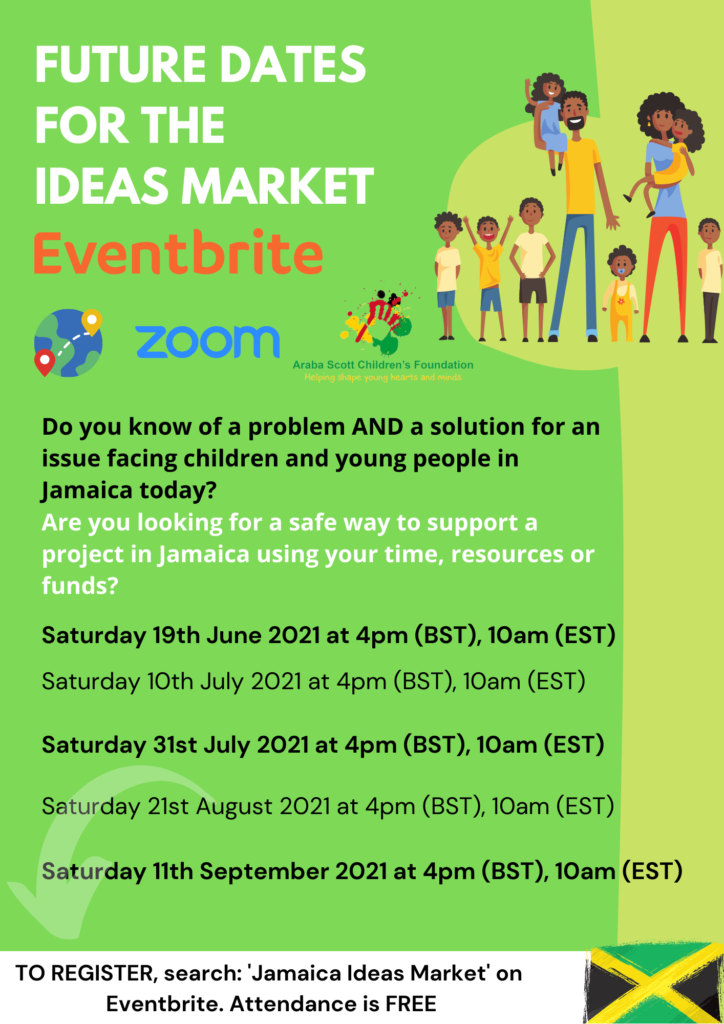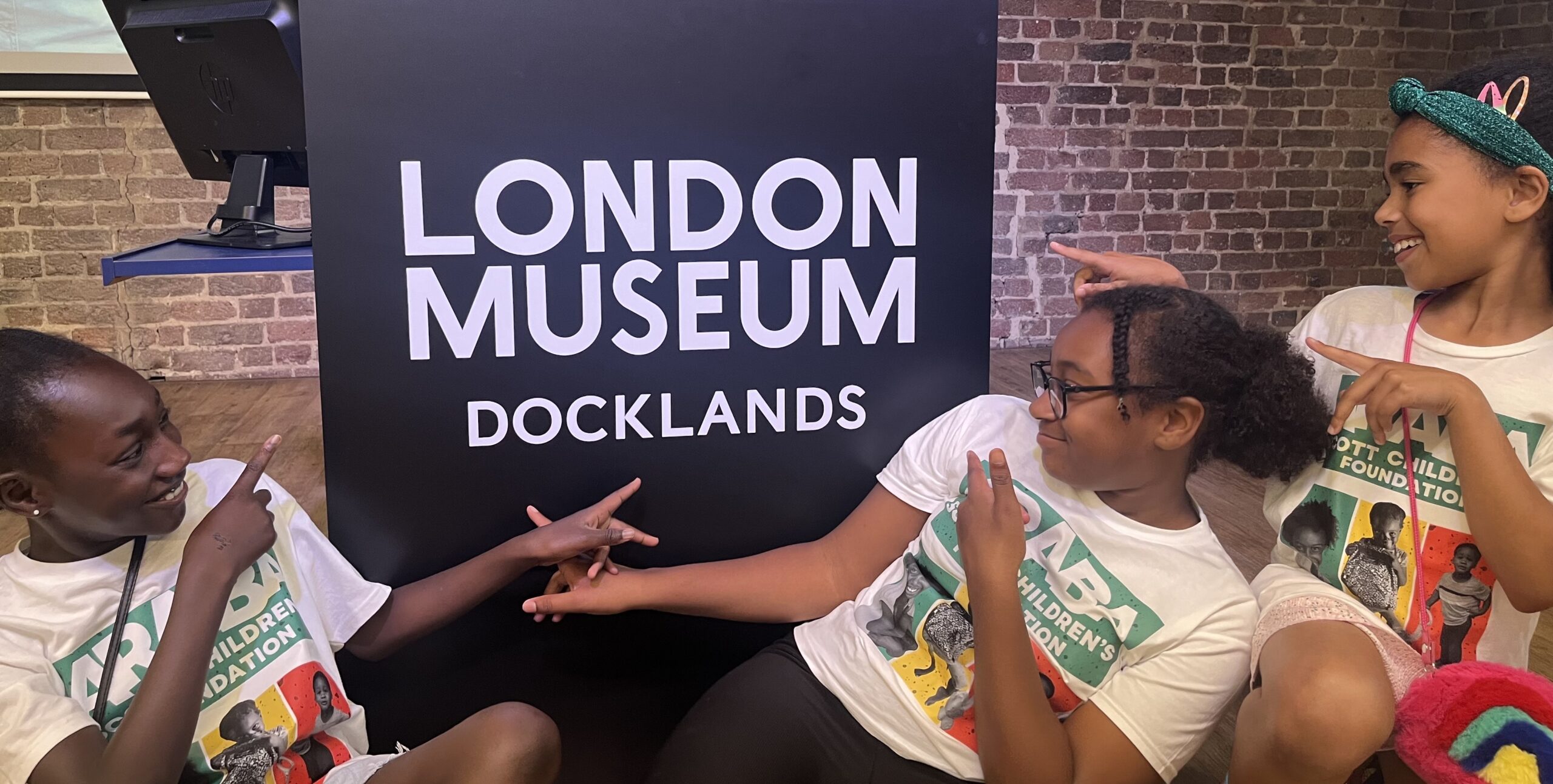Today was the pilot of the Ideas Market, and we were joined by 8 participants from the U.K. and Jamaica. Some were social workers, others were faith leaders, some worked for housing associations in the U.K. and others were parents. We discussed our motivations for joining the meeting which for us was to build a larger safety net for children and young people when there is a safeguarding concern. We had noticed a worrying pattern over the years when reporting child protection concerns, that there was a lack of urgency shown by authorities with the mandate to protect children in Jamaica. There have been a few too many instances where immediate action is required (and to be honest, expected) and it hasn’t been offered.
Although this has been a great source of frustration for us, it has led to the formation of a strong safety net of individuals we can call upon to check up on children in need, who act as a buffer to prevent further harm coming to children while waiting for the authorities to attend. Speaking to people in the U.K., it reminded us that if people in the diaspora are aware of the needs of children, they are often more than happy to assist in whichever ways they can. Typically, the best way people support is through their time, resources and money and this is what the Ideas Market hopes to safely facilitate going forward.
How the Ideas Market works
The Ideas Market will be held every 3 weeks for the next 6-months, via Zoom, and free tickets for each session will be made available through Eventbrite. You can book for the first Ideas Market now.
Each Market session will consist of 3 participants:
Participant A attends to present a problem and a possible solution to the Market*.
Participant B attends to listen and ‘buy into’ a problem and solution they see as viable.
Participant C attends to engage in discussion about children’s issues in Jamaica, and learn more. They may eventually become Participant A or B.
Each Market will be moderated by Alicia Louise, the Director at Araba Scott Children’s Foundation.
*If your idea is not fully developed, the Ideas Market is here to support you by listening and working together to arrive at a solution. So, don’t worry if you ‘haven’t got it all figured out’ yet. To support the spread of your Ideas, the Monday after each market session, we will publish a blog with the ideas mentioned, and all details will be anonymised (unless you request that we share them). The blog will be published on our Instagram, Facebook, Twitter and LinkedIn pages.
Problems Facing Children and Young People in Jamaica
While this is not an exhaustive list, here are 8 areas of concern the Ideas Market will target;
1. Improving the educational attainment of children
2. Promoting and ensuring children’s mental wellbeing
3. Promoting and ensuring children’s physical wellbeing
4. Online access and safety
5. The prevention of abuse and harm to children
6. Children’s access to school
7. Responses to child neglect
8. Availability of training opportunities for professionals working with children
Discussions at the Ideas Market Pilot
We discussed our individual ideas. Some suggested we should do more to help parents as many have their own traumas that prevent them from being fully present and responsible as parents. One of our trustees had mentioned that this is something they would like to take up, and so we will catch up with her to start making this work a reality.
A participant from the U.K. discussed the importance of storytelling as a fantastic way of telling people in the diaspora about what is going on for children and young people, and for gaining support. This led to a discussion of how best to tell these important stories so the confidentiality and privacy of children and their families is honoured. We reflected on how the media in Jamaica reports on crimes against children, and the way the most vulnerable are not anonymised or protected by some media outlets. We appreciated each other’s concern to be doubly careful that we maintain control over the stories we tell of children and their individual circumstances – so children’s dignity and privacy remains in tact.
We discussed the rising divide between the ‘haves’ and the ‘have nots’ in Jamaica, and how there seems to be very little tolerance for the latter. We all agreed that we are here for the most vulnerable in Jamaica, and although we may not have all the answers, by working together we will have some of them, and these can make a remarkably positive change for children and young people across Jamaica.






